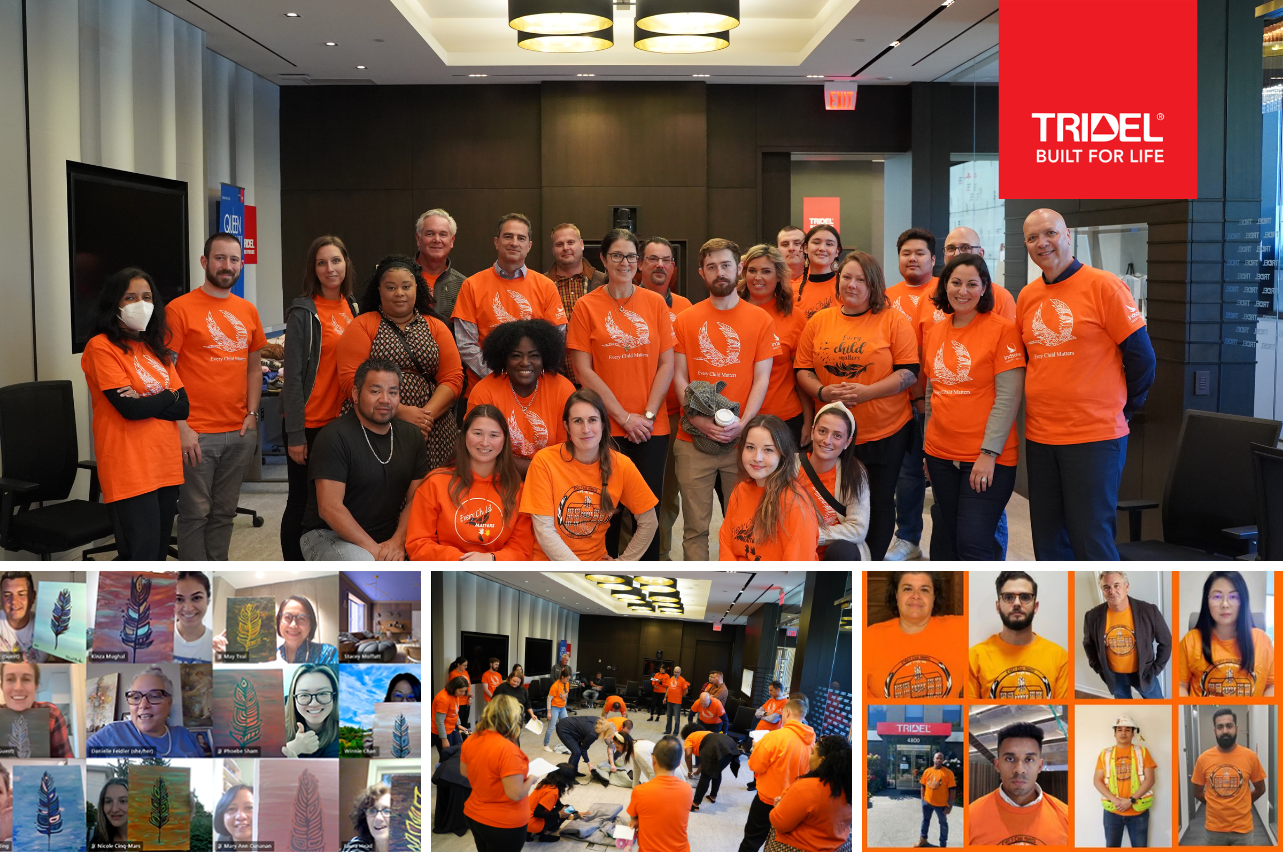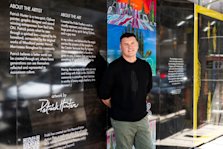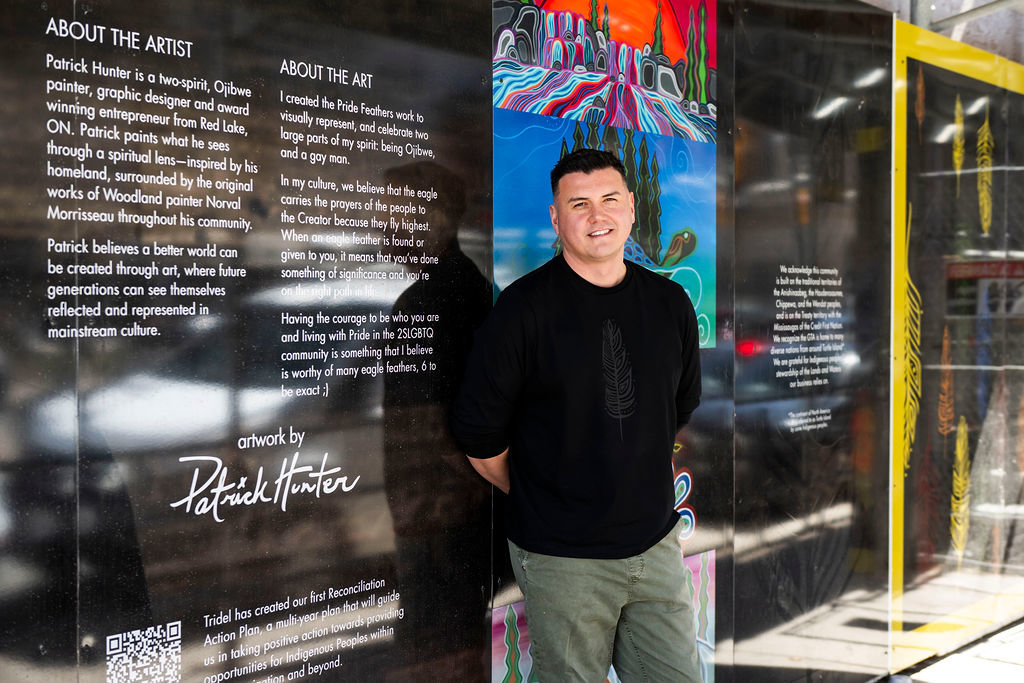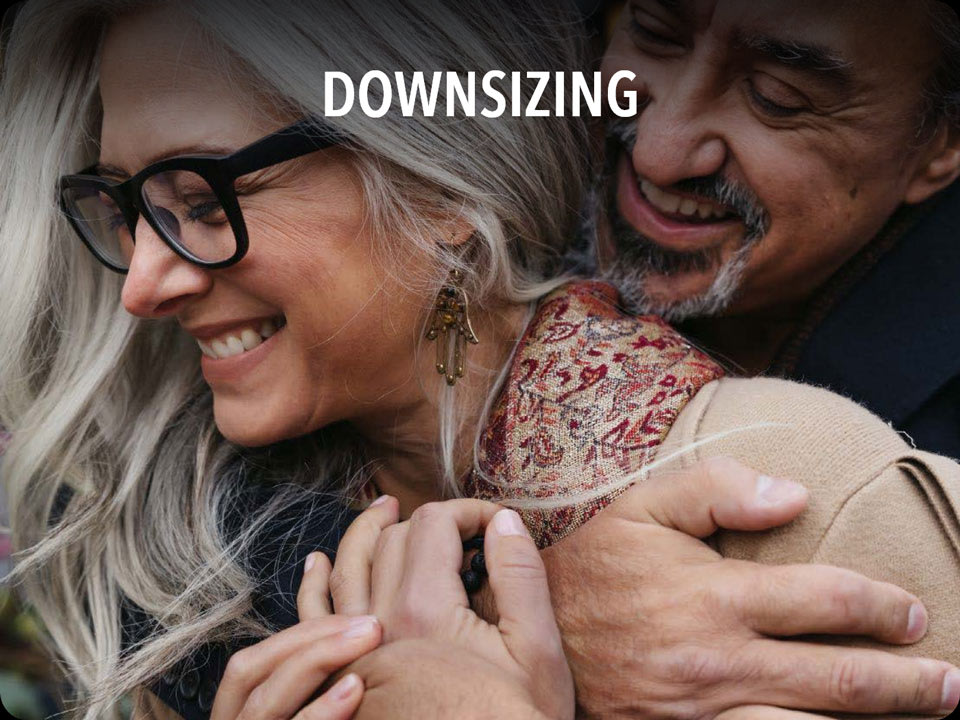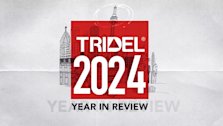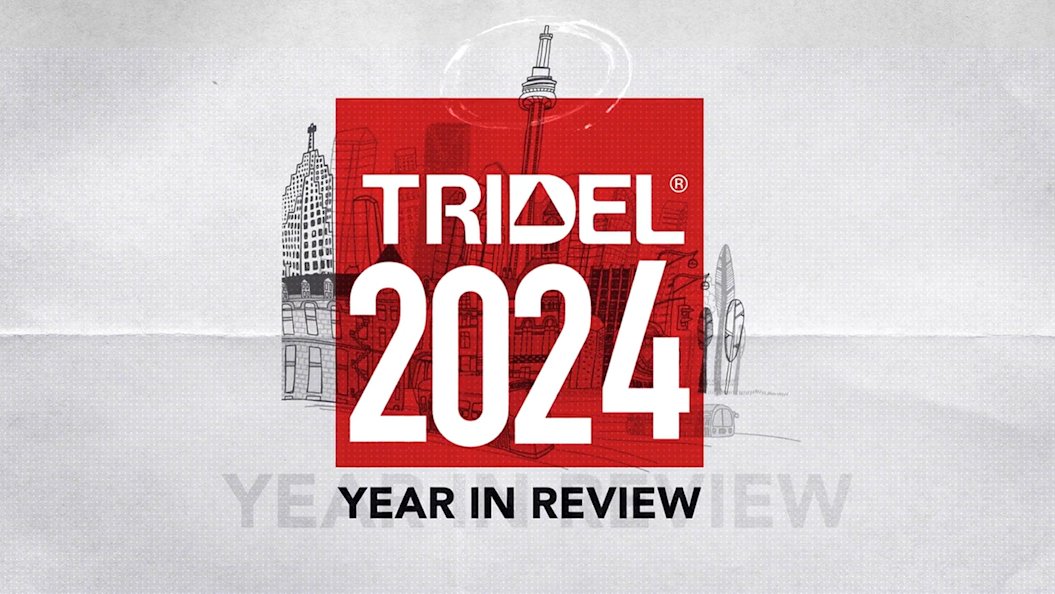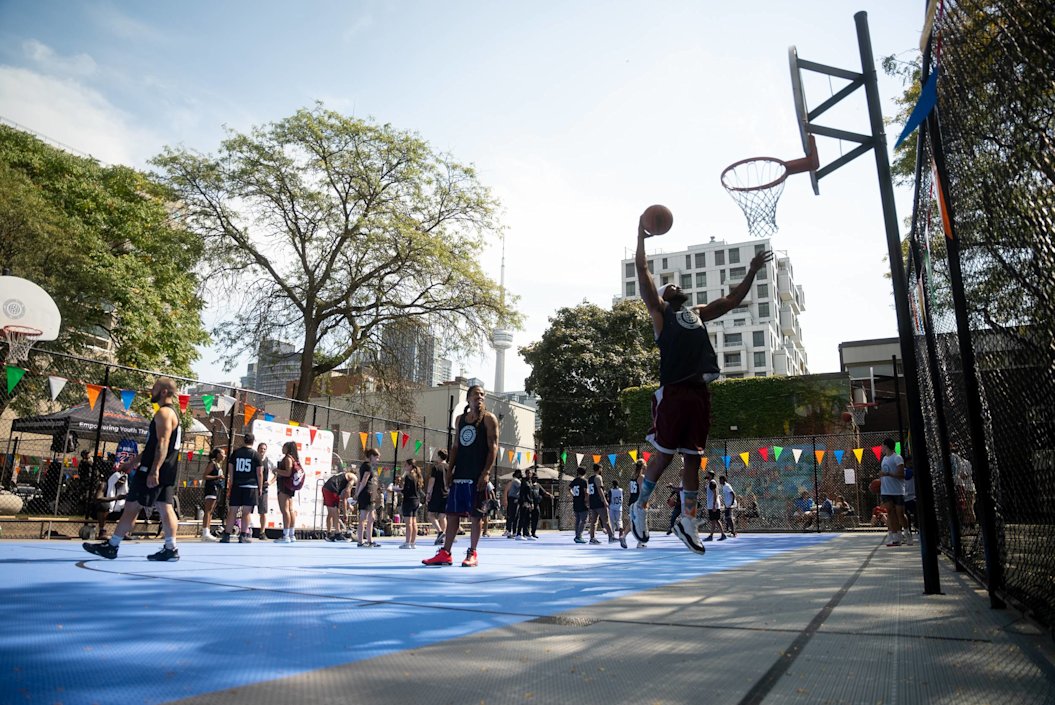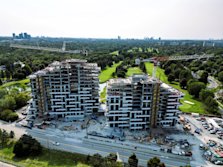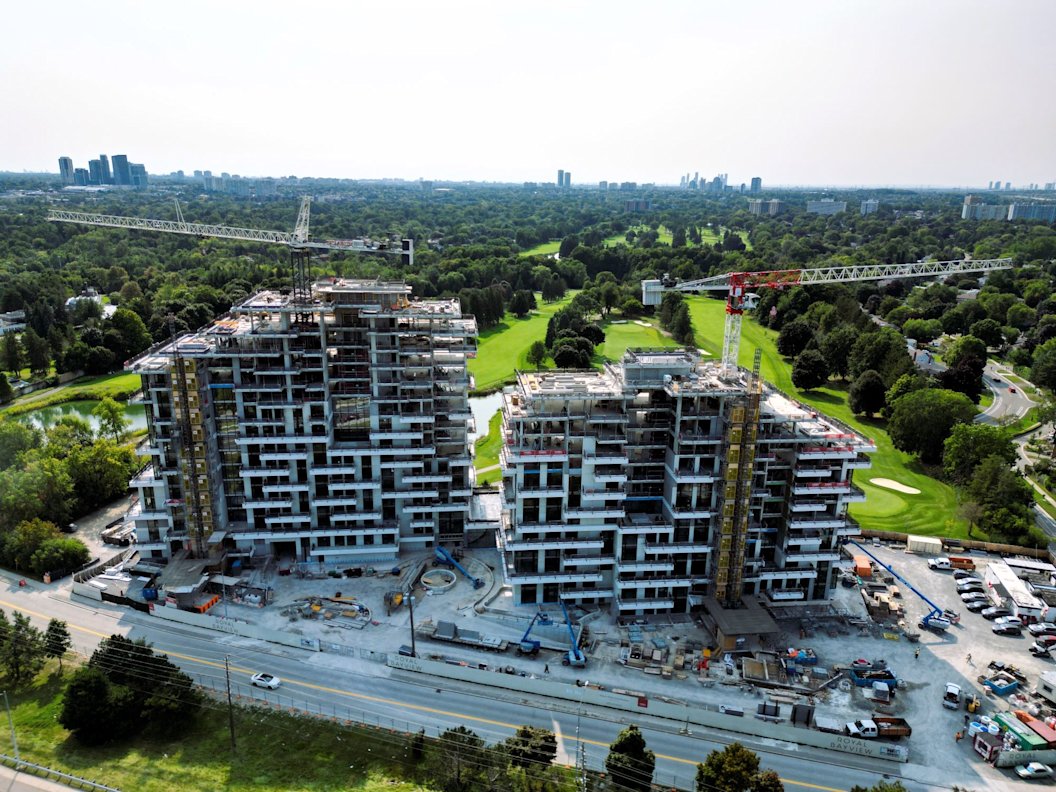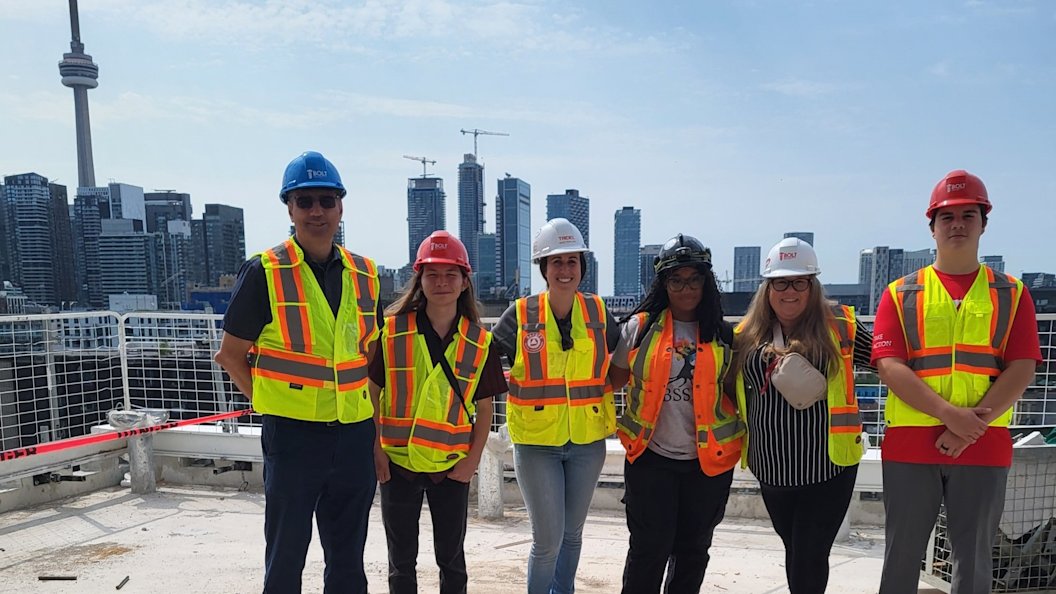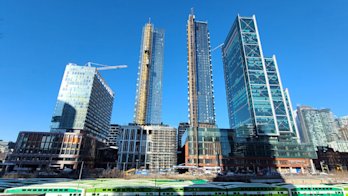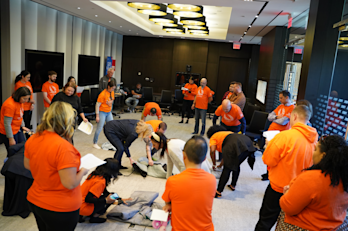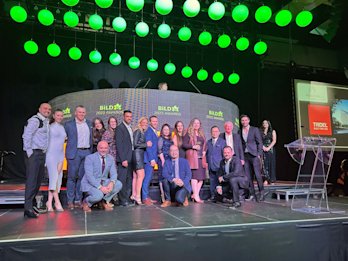OCTOBER 2, 2022
Tridel’s Reconciliation Journey.
Reflecting on the inclusions for the corporate sector under Call to Action 92, Tridel has begun the important first steps in recognizing and taking positive action towards building awareness and providing opportunities for Indigenous Peoples within Tridel, with our partners, and within the industry.
"We acknowledge the land on which the head office for Tridel operates is the traditional territory of the Wendat, Anishinabeg, the Haudenosaunee Confederacy, and on the Treaty Territory of The Mississaugas of the Credit River First Nation. Many Indigenous people from across Turtle Island continue to call this land home, and we are grateful to have the opportunity to work here. We recognize that our past, present, and future are tied to the lands where we live, work, and grow together and in the spirit of reconciliation, we commit to peaceful collaboration for a prosperous, sustainable future for all."
Reflecting on the inclusions for the corporate sector under Call to Action 92, Tridel has begun the important first steps in recognizing and taking positive action towards building awareness and providing opportunities for Indigenous Peoples within Tridel, with our partners, and within the industry.
At Tridel, we continue to make progress toward our reconciliation commitments by providing training, education, and awareness activities for employees. Some of these include and Indigenous Fusion Cooking Class with Chef Wolfman, Paint Night with Ojibwe artist, Patrick Hunter, and a Blanket Exercise & Sharing Circle with Indigenous facilitators.

We also have recently joined as a supporter of the Building Brighter Futures scholarship fund, supporting youth from across Turtle Island pursue education in professional, administrative, and technical career paths.
We have begun the important task of educating employees through an interactive course known as the 4 Seasons of Reconciliation. This course delivers the truths and implications of the historical and contemporary relationship between Indigenous Peoples and those settled on their lands in Canada from the lens of reconciliation. Over 125 employees have completed the course so far!
Whose Land Are We On?
Land acknowledgements are an important start for reconciliation as they help build an understanding of the traditional caretakers and stewards of this land as well as who the treaty holders are. In the land acknowledgement above as to where the lands Tridel builds and operates on are, you will see a number of traditional territory owners including the Wendat, Anishinabeg (Ah-nish-naw-bek), the Haudenosaunee Confederacy (Hoodt-en-oh-show-nee).
The treaty holders are the Mississaugas of the Credit First Nation (MCFN), and our internal team at Tridel has been meeting with Chief Laforme to establish the relationship and understand what reconciliation means to the MCFN.
What to Say and How to Say It
One of the first steps we took was to educate ourselves on the three main groups of Indigenous peoples in Canada, and the proper terminology when working with Indigenous peoples.
Below you will find a list of terms that will help get started.
Here are some helpful terms:
Indigenous
A collective noun for First Nations, Inuit and Métis. “Indigenous” refers to all of these groups, either collectively or separately.
Turtle Island
This is the name given to North America by some Indigenous Peoples, such as the Iroquois, Anishinaabeg, and other Northeastern nations. In various Indigenous origin stories, the turtle is said to support the world, and is an icon of life itself. Turtle Island therefore speaks to various spiritual beliefs about creation and for some, the turtle is a marker of identity, culture, autonomy and a deeply held respect for the environment.
Two-Spirit
Two-Spirit is used by Indigenous People to describe their sexual orientation, gender and/or spiritual identity. The term is an umbrella term that includes gay, lesbian, bisexual, and trans/gender non-conforming identities and is what the “2S” stands for in 2SLGBTQ+.
Here are some terms you should AVOID:
“Canada’s Indigenous People” or “Our Indigenous People”
The Indigenous Peoples on Turtle Island are not owned by Canada, which is how it may sound! Indigenous Peoples were in what we now know as Canada, well before Confederation in 1876. Archaeological evidence goes back more than 12,000 years! Try to say: “Indigenous Peoples in Canada” or “Indigenous People in what we now call Canada”, instead.
“Eskimo”
Eskimo is a term that has been used to describe the Inuit throughout their homeland, Inuit Nunangat, in the arctic regions of Alaska, Greenland and Canada, as well as the Yupik of Alaska and northeastern Russia, and the Inupiat of Alaska. However, many people in parts of the Arctic consider “Eskimo” a derogatory term because it was widely used by racist, non-native colonizers. Most people prefer other terms. The most commonly used is “Inuit,” which means simply, “people.” The singular, which means “person,” is Inuk.
“Indian”
The term ‘Indian’ because of its negative connotation, should be avoided in most contexts unless it is used as part of a historical reference or used in reference to a government policy (e.g. The Indian Act, ‘status Indian’).
Latest Tridel News
Featured articles
